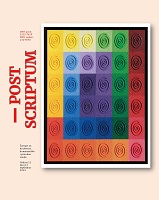JEZIČKO-STILSKE OSOBINE DJELA „MAGAREĆE GODINE“ BRANKA ĆOPIĆA
LANGUAGE AND STYLE CHARACTERISTICS OF BRANKO ĆOPIĆ'S WORK "THE DONKEY YEARS"
Author(s): Sanja MerzićSubject(s): Sociolinguistics, Bosnian Literature, Theory of Literature, Stylistics, Sociology of Literature
Published by: Pedagoški fakultet Univerziteta u Bihaću
Keywords: linguostylistic analysis; „Magareće godine“; Branko Ćopić;
Summary/Abstract: Subject of analysis are linguistic and stylistic characteristics of a novel „Magareće godine“ by Branko Ćopić. Published in 1960. this novel presents a story of growing up, friendship, first love, education and mischiefs of a group of children. Analysis was conducted on the level of phonostylistic, morphostylistic, lexicostylistic and semantostylistic. On the level of phonostylistic, stylistic figures of subtraction (syncope and apocope) and adjunction (paragogue) were detected. These figures were used in order to depict characters thoroughly and they indicate on local, mostly provincial and jargon use of language. On the level of morphostylistic very common and specific is use of aorist. Although this verb tense could be substituted with perfect tense, aorist is much more stylistically expressive. Ćopić uses this tense for fast change of actions; for desplaying sudden and lively occurences, as well as at the end or the beggining of direct speech. On the level of lexicostylistic very common is the use of deminutives, augmentatives, exclamations and imitative words. Having in mind, that this literary work is part of literature for children, use of expressive lexic has a function of expressing what is dear, scary, funny or strange to children, or what is small or big. Also, this level of analysis is typical by its use of many nicknames, which is again specific for works from the area of literature for children. Nickanames are created by shortening names and last names, and are also based on physical characteristics or behaviour of its carrier. They mostly have positive meaning, but those of negative meaning are also present. Among lexic and syntactic figures very common is the use of anaphora, rhetorical question, aposiopesis, ellipsis, accumulation (and its varieties), and epizeuxis. On the level of semantostylistic simile is a very common figure. It is used to make expression more lively and to make abstract terms more concrete. Its common use in this litraray work is in order to create humoristic effect. Except this figure, very common is the figure hyperbole. Using semantic figures, together with ellipsis and epizeuxis, Ćopić presents and revives the manner how children speak, and makes this literary work close to those that are intended to read it. Linguostylistic analysis of Ćopić's work „Magareće godine“ has detected that this literary work is abundant is means of expressive lexic, lexic, syntactic and semantic figures, types of aorist and phonetic and phonological figures of substraction and adjunction.
Journal: Post Scriptum
- Issue Year: 2023
- Issue No: 13
- Page Range: 201-214
- Page Count: 14
- Language: Bosnian

